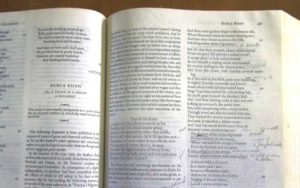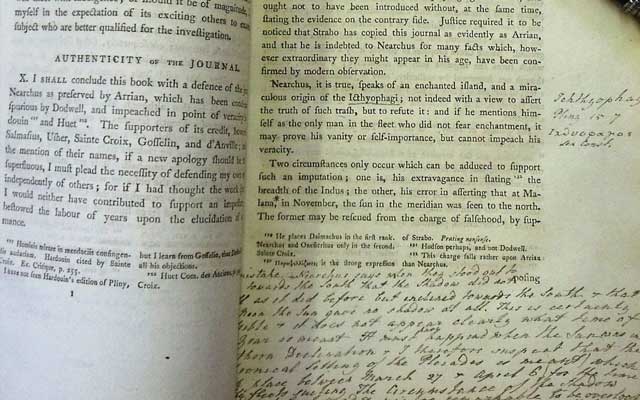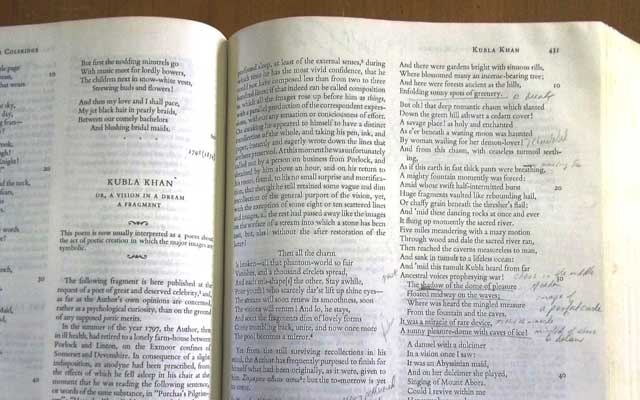Marginalia May 17, 2016 – Posted in: Blog, Book Reviews
mar·gi·na·li·a ˌmärjəˈnālēə/, plural noun meaning: notes in the margin of a book, manuscript, or letter. C19: New Latin, noun (neuter plural) from marginālis marginal.
In getting my books, I have been always solicitous of an ample margin; this not so much through any love of the thing in itself, however agreeable, as for the facility it affords me of pencilling suggested thoughts, agreements, and differences of opinion, or brief critical comments in general….. marginalia are deliberately pencilled, because the mind of the reader wishes to unburthen itself of a thought;–however flippant–however silly–however trivial–still a thought indeed, not merely a thing that might have been a thought in time, and under more favorable circumstances. ….In the marginalia, too, we talk only to ourselves; we therefore talk freshly–boldly- originally–with abandonments–without conceitl… (From the column Marginalia, by Edgar Allan Poe published in The Democratic Review 1844-49).
“Coleridge was himself the master of marginalia – 72 of his notebooks survive compiled into five volumes”.

Kubla Khan
The term marginalia originates with Samuel Taylor Coleridge (first documented use is 1832). The one and the same Coleridge whose famous “Kubla Khan; or, A Vision in a Dream: A Fragment” has fascinated poetry readers (and the opium curious) for two centuries. Coleridge was himself the master of marginalia – 72 of his notebooks survive compiled into five volumes. Below left is a picture of my own marginalia on Kubla Khan from long ago university days. I give full marks to myself for using pencil; I am also thankful that my ineligible handwriting shields it from being read. The right side picture is an example of marginalia written in a lovely hand; it was presumably written around the same time of Coleridge. It is found in: The Voyage Of Nearchus, Vincent, William, 1797. First Edition. And yes! This book is for sale. (See listing 000951)
The practice
The practice of marginalia goes way, way back and includes the scolia written by monks in mediaeval scriptoriums. Examples abound penned by obsessive side scribblers in all fields of endeavour – think Charles Darwin, Pierre de Fermat. Sir Walter Raleigh, John Adams, Winston Churchill and the list goes on. Along with Coleridge and Poe, the literary field includes Herman Melville, Oscar Wilde, Mark Twain, Sylvia Plath, Vladimir Nabokov etc. etc. etc.. Here’s a recent gem discovered by Ian Frazier of The New Yorker: On page 227 of Jack Kerouac’s (library borrowed and long overdue) copy of Thoreau’s A Week on the Concord and Merrimack Rivers, Kerouac underlined in pencil, and made a check mark beside the sentence: “The traveler must be born again on the road.”
“The traveler must be born again on the road.” — Jack Kerouac’s
Along with the Poe quote above, my favorite piece about marginalia is the poem Marginalia written by Billy Collins, American Poet Laureate. First published in Picnic, Lightning, 1998, you can also find a You Tube video of Collins reading the poem from The Best Cigarette Album. It is at once profound and witty. I promise it will provide you with a smile and a sigh when you reach the end.
Recommended reading: Jackson, H. J. (2001). Marginalia: Readers writing in books. New Haven, CT: Yale University Press


